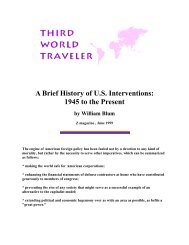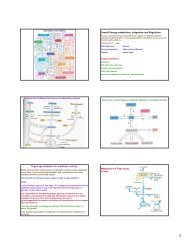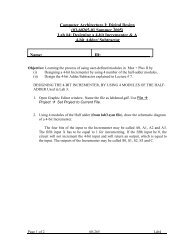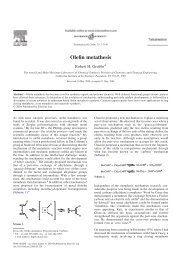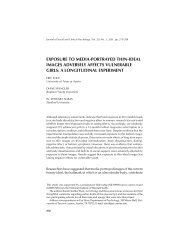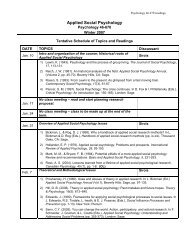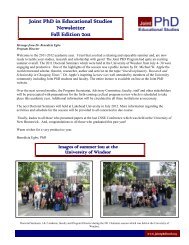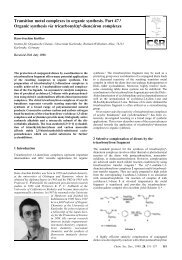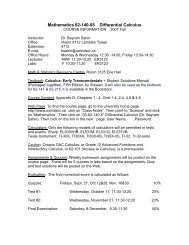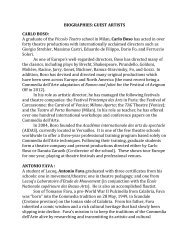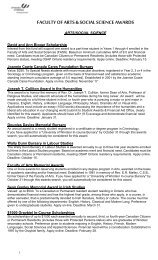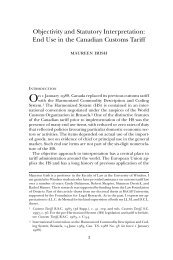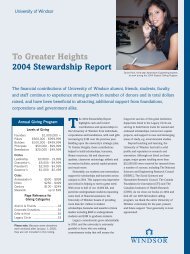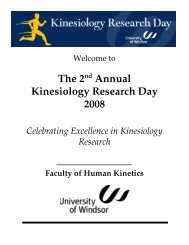Critical Social Work - University of Windsor
Critical Social Work - University of Windsor
Critical Social Work - University of Windsor
Create successful ePaper yourself
Turn your PDF publications into a flip-book with our unique Google optimized e-Paper software.
Brown<br />
taking a position against structural oppression while rendering visible individual agency and<br />
power. Thus a reformulated approach moves beyond the modernist binary construction that one<br />
either has power, or one does not (Brown, 2007b; Fook & Morley, 2005; Hick, 2005). Instead,<br />
greater attention to the subtleties <strong>of</strong> techniques <strong>of</strong> power in day to day life allows for a<br />
“both/and” approach to the ways people <strong>of</strong>ten have and do not have power.<br />
A postmodern stance on anti-essentialism and anti-totalizing may prevent reproducing<br />
preconstituted “truths” about difference. Instead, the ways that difference is socially organized<br />
and shaped within oppressive social relations may be underscored. This means reflexive<br />
awareness <strong>of</strong> similarities and differences between and among social groups, and the importance<br />
<strong>of</strong> not reifying socially constructed identities. While we do not need to abandon social categories,<br />
we do need avoid simply re-inscribing and entrenching them. As such, we can strive to hold onto<br />
a tension between rejecting and accepting aspects <strong>of</strong> these categories.<br />
Drawing on the strengths <strong>of</strong> modern and postmodern sensibilities will allow for an antioppression<br />
discourse which strives to be inclusive <strong>of</strong> marginalized and suppressed voices,<br />
without deferring to naturalized experience or emotion. There is thus no autonomous, fix,<br />
unified, discoverable self, for the self is always fully social. As all individual experience is more<br />
than subjective, there can be no singular voice. Further, as all stories are socially constructed<br />
they embody both dominant and subjugated knowledge. The postmodern contribution to antioppression<br />
discourse <strong>of</strong>fers this reflexivity around the social processes which shape the self, and<br />
encourages unpacking the stories that clients tell, and to co-write more helpful, less oppressive<br />
ones. Within this approach both the client and the social worker are active embodied subjects<br />
who contribute knowledge.<br />
According to Hick and Pozzuto (2005):<br />
The mingling <strong>of</strong> critical social theory with post-modernist or post-structuralist theory is<br />
necessary today. Some authors have called for a mingling <strong>of</strong> critical social theory and<br />
post-structuralist. …We are taking the position that we should not reject theories <strong>of</strong> the<br />
modern era out-<strong>of</strong>-and. Instead, we should retain certain visions, theories and practices<br />
from the modern era, seeing the post-modern as continuous with the modern. In other<br />
words, social work practice in the current era definitely requires a turn in our modes <strong>of</strong><br />
thought, but perhaps not a complete overhaul (p. xvii).<br />
This blend <strong>of</strong> modernism and postmodernism for anti-oppression discourse in social work<br />
enables seeking social justice through challenging oppression and domination, and encourages<br />
reflexive discursive practices to resist contributing to oppression. In short, this blended approach<br />
to anti-oppressive social work enables it to face the task <strong>of</strong> combining a non-essentialized<br />
understanding <strong>of</strong> social life with its emancipatory agenda.<br />
Conclusion<br />
Emanating within the cultural conditions and circumstances <strong>of</strong> the moment, antioppressive<br />
discourse, like all discourse, is not static (Harvey, 1990; Leonard, 1997, 2001). Antioppression<br />
social work discourse is a response to previous approaches to social work, both<br />
<strong>Critical</strong> <strong>Social</strong> <strong>Work</strong>, 2012 Vol. 13, No. 1<br />
53



